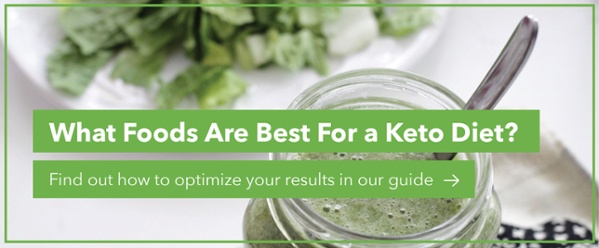
More than 70% of adults in the U.S. are overweight or obese, but this wasn’t always the case. So, why are we gaining so much weight, and how can we lose it in a natural and sustainable way?
It’s important to recognize that multiple factors interfere with the body’s ability to lose weight and keep it off. Research shows that the simplistic “calories in, calories out” theory that may have been effective decades ago doesn’t work anymore. Instead, people should be looking to lower their toxicity and chemical exposures and focus on macronutrient composition, getting enough sleep, and understanding their body’s unique chemistry. This can be done naturally and effectively with a few simple steps.
Why Are We Obese?
The obesity epidemic in America has become a systemic problem that goes far beyond simply eating less and exercising more. But to learn how to combat this problem, we need to take a look at why obesity and general weight management is becoming an ever-growing issue.
Chemical Exposures
Today more than in past decades, chemical and toxic exposures in our environment, homes, and foods are greatly contributing to body fatness. For example, plastics and other common toxins found in household cleaning products and cosmetic and beauty products are known endocrine disrupters and obesogens, meaning they impact hormonal balance and cause weight gain.1
Microbiome Offenders
Growing evidence links an unhealthy gut microbiome to obesity.2 The intestinal microbiome refers to the trillions of bacteria that reside in your gut, and many modern-day influences end up skewing the balance between “bad” and “good” bacteria. Common microbiome offenders include overuse of antibiotics, toxic household cleaning products, a diet high in processed foods, sugars and refined grains, a low-fiber diet, and chronic stress.
Thyroid Problems
Thyroid problems are also on the rise, and not just in the populations they used to affect. Nowadays, people of all ages, genders, and sizes are experiencing thyroid issues—particularly the autoimmune Hashimoto’s disease—that are likely due to increased chemical exposure. The thyroid gland plays a major role in regulating metabolism, so weight gain or an ability to lose weight is a natural consequence of thyroid dysfunction.
Yo-Yo Dieting and Caloric Restriction
The standard diet paradigm has been to restrict calories on a long-term basis, which naturally leads to yo-yo dieting, since this method of weight loss is not sustainable. Not only does this weight loss method lower your metabolic rate, but it also depends on willpower alone to fight impulses. Studies show that this is unlikely to work in the long run and can actually have the opposite effect.3

Six Ways to Lose Weight Naturally
Now that we know some common causes of weight gain to avoid, let’s consider the best ways to lose weight naturally and keep it off.
1. Consider Your Unique Body Type
As much as mainstream media pressures us to strive for a certain body type, the truth is we all have a unique body type and biochemistry. Before beating yourself up or striving for a body type that doesn’t match your reality, consider if your body is designed to look a certain way and how it is designed to lose weight. There is no one-size-fits-all approach when it comes to weight loss, and healthy bodies come in all different shapes and sizes.
2. Be Wary of Fad Diets
Simply put, fad diets rarely work long-term. Ideally, you’ll work with a functional medicine provider or naturopathic doctor to determine what dietary model and exercise program is right for your body, but keep in mind that fad diets go out of style for a reason. They usually depend on the restriction of either calories or a whole macronutrient group, which is not sustainable for health or weight loss. Biology will always win, and you will not be able to maintain that diet long term.
3. Eat Good Fats
Contrary to popular belief, a diet that includes plenty of good fats can help with weight loss, rather than hinder it.4 On the flip side, a low-fat diet model, particularly one that restricts calories, can cause weight gain in the long-term. Part of the reason is that fat is a very satiating macronutrient, meaning it helps to control hunger and cravings. The body also depends on fat for nutrient absorption, cell growth, brain function, and more.
It’s important to remember that quality matters, so it’s best to opt for healthy fats like grass-fed meats, pasture-raised poultry, wild fish, organic extra virgin olive oil, organic cold-pressed safflower and sesame oil, coconut oil, palm kernel oil, and avocados.
4. Don’t Skimp on Protein
Protein is also key for feeling satiated, and it is essential for muscle growth. Protein has a higher thermic effect, meaning it raises the body’s metabolism after consumption. While there is no exact protein prescription since it depends on your body type, activity level, and other factors, getting enough protein to meet your needs is important to losing weight naturally.
5. Avoid Chemical Exposures
Some environmental toxins—such as those in the air—are impossible to avoid. But you have choices over what foods you buy, what products you use on your body and in your home, and what type of kitchenware you cook with. Whenever possible, avoid exposure to chemicals that can act as obesogens and endocrine disrupters.
6. Get Sufficient Sleep
Sleep is the foundation of health and weight loss. Studies show that insomnia leads to weight gain, so addressing any existing sleep issues is critical.5 Proper sleep hygiene—like purchasing blackout curtains, reducing exposure to artificial light at night, and turning off devices in the evening—can help.
Today, humans face significantly more roadblocks to weight loss than we used to. Despite these obstacles, considering these steps for natural weight loss and consulting with a local functional medicine or naturopathic provider can help you create a personalized diet and lifestyle plan that can make the process easy and life-changing.
By Ian D. Bier, ND, PhD, LAc, FABNO

Sources:
1 Okada, H., Tokunaga, T., Xiaohui, L., Sayaka, T., Ayami, M., Yasuyuki, S. Direct Evidence Revealing Structural Elements Essential for the High Binding Ability of Bisphenol A to Human Estrogen-Related Receptor-γ. 2008. https://www.ncbi.nlm.nih.gov/pmc/articles/PMC2199305/. Accessed December 4, 2019.
2 Davis, C. The Gut Microbiome and Its Role in Obesity. 2017. https://www.ncbi.nlm.nih.gov/pmc/articles/PMC5082693/. Accessed December 4, 2019.
3 Higginson, A. D., McNamara, J. M. An adaptive response to uncertainty can lead to weight gain during dieting attempts. 2016. https://academic.oup.com/emph/article/2016/1/369/2803021. Accessed December 4, 2019.
4 Sherman, H., Genzer, Y., Cohen, R., Chapnik, N., Madar, Z., Froy, O. Timed high-fat diet resets circadian metabolism and prevents obesity. 2012. https://www.fasebj.org/doi/10.1096/fj.12-208868. Accessed December 4, 2019.
5 Knutson, K. Does inadequate sleep play a role in vulnerability to obesity? 2012. https://onlinelibrary.wiley.com/doi/abs/10.1002/ajhb.22219. Accessed December 4, 2019.

















